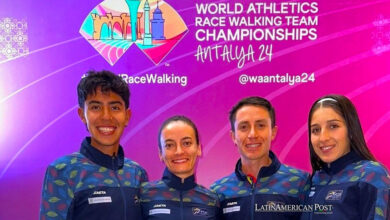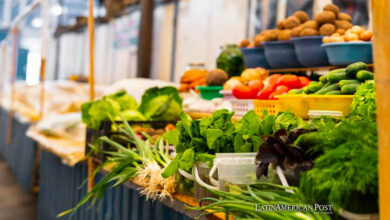The Venezuela Superleague: more women’s football!
Listen this article
2019 is promising for women's football in this South American country that is implementing a series of modifications

Teams like Deportivo Tachira, Secasports, Vencedores de Cojedes, Carabobo Fútbol Club and Estudiantes de Guarico – this last absolute champion in 2017 – left the competition for multiple reasons.
First, the high costs generated by women's football without any economic retribution; second, not having a professional identity for the competition; third, which only applied for two sets, the lack of interest of this discipline to not have the obligation to participate, as they are imposed in the Club License Regulations of the South American Football Confederation (CONMEBOL) to all schools of first division men who are in international competition (Copa Libertadores and Sudamericana).
Leer en español: Conoce más de la Superliga de Venezuela: ¡Más fútbol femenino!
According to the Club License Regulations of CONMEBOL, "the applicant (to compete in the competition) must have a female team or join a club that owns the same, in addition, must have at least one female youth category, or join a club that owns the same, in both cases, the applicant must provide technical support to all the equipment and infrastructure (field of play for the match and training) necessary for the development of both teams in appropriate conditions. , both teams are required to participate in national/regional competitions authorized by the respective member association ", concludes the CONMEBOL excerpt.
Before the departure of so many teams of women's football, the Venezuelan Football Federation (FVF) began with the registration process for all those clubs with professional identity. Despite the inclusion of three new sets: Puerto Cabello Academy, Arroceros de Calabozo and Gran Valencia, which later became two, as Puerto Cabello decided to step aside, the lack of equipment in the Occidental was evident, so that it was agreed, for the first time in three years, to draw a capital club to close the group, according to the official website of the FVF.
Read also: Soccer: Ada Hagerberg will not play the Women's World Cup France 2019
The selected one would be Students of Caracas, who would be the only group from the Central Eastern Group to play in the Central Western Group. Given the draw, both areas would be made up of seven teams:
Central Eastern Group: Deportivo La Guaira, Lala Futbol Club, Caracas Football Club, Atlético Venezuela, AC Mineros de Guayana, Monagas SC, and Arroceros de Calabozo.
Western Center Group: Zamora Soccer Club, Zulia Soccer Club, Flor de Patria, Students of Merida, Students of Caracas, Deportivo Lara and Gran Valencia, informed the website of the FVF.
One of the most important changes in the format was the elimination of two tournaments (Opening and Closing) per year; there will be only one contest that will run from April 30 until June 29 in its regular phase (round trip). Those classified to the next instance will remain in competition for the quarterfinals, semifinals and finals until mid-October, the winning team will automatically become the absolute champion and who will have the responsibility of defending Venezuela in the Copa Libertadores Femenina 2019.
Two champions were previously chosen – Opening and Closing – per year and the absolute winner of the contest was defined with a final between both monarchs for their participation in the Libertadores.
The last novelty, but no less important, is the classification of the best four by area for the final instance, which undoubtedly excites the 'oncenas' to give the bump and win the spot to the Copa Libertadores Femenina 2019.
Even tournament
During the first two editions of the Women's Superliga of Venezuela (2017 and 2018), the public and even some groups "got used" to see the Estudiantes de Guárico by Paola Villamizar and the Flor de Patria by Paoli and Petra Cabrera, the current champion.
This year seems to be different; competitiveness increased after the departure of the five teams, more than 100 players were left without colors to fight for, without employment. All this generated a process of broad recruitment; many athletes did not hesitate to go abroad, others, with some despair, looking for a new team, an opportunity to show.
It becomes difficult for the participating clubs this year to have currently the "winning" squad that they could have at the 2018 Clausura, most of them have been modified -for good and bad- and, as if that were not enough, the teams have had enough time for the preparation after the delay at the beginning of the Superliga that touches its second week.
A brief example of the transfer market has been players such as Mayerline Chacón and Angelly Pineda, who are currently in the ranks of Estudiantes de Caracas, athletes who previously defended Estudiantes de Mérida and Flor de Patria. Yulismar Useche, Daisy Cegarra, Leidy Ramirez, Osmailin Borges, and Yerliane Moreno, former Deportivo Tachira, now wear coffee plants.
Good football, accompanied by uncertainties and surprises about who will be the new monarch is what will bring us the latest edition of the Women's Super League 2019 of Venezuela, hoping to continue consolidating the tournament and become one of the leagues with more boom in South America.
LatinAmerican Post | Daniela Palencia
Translated from "Conoce más de la Superliga de Venezuela ¡más fútbol femenino!"




